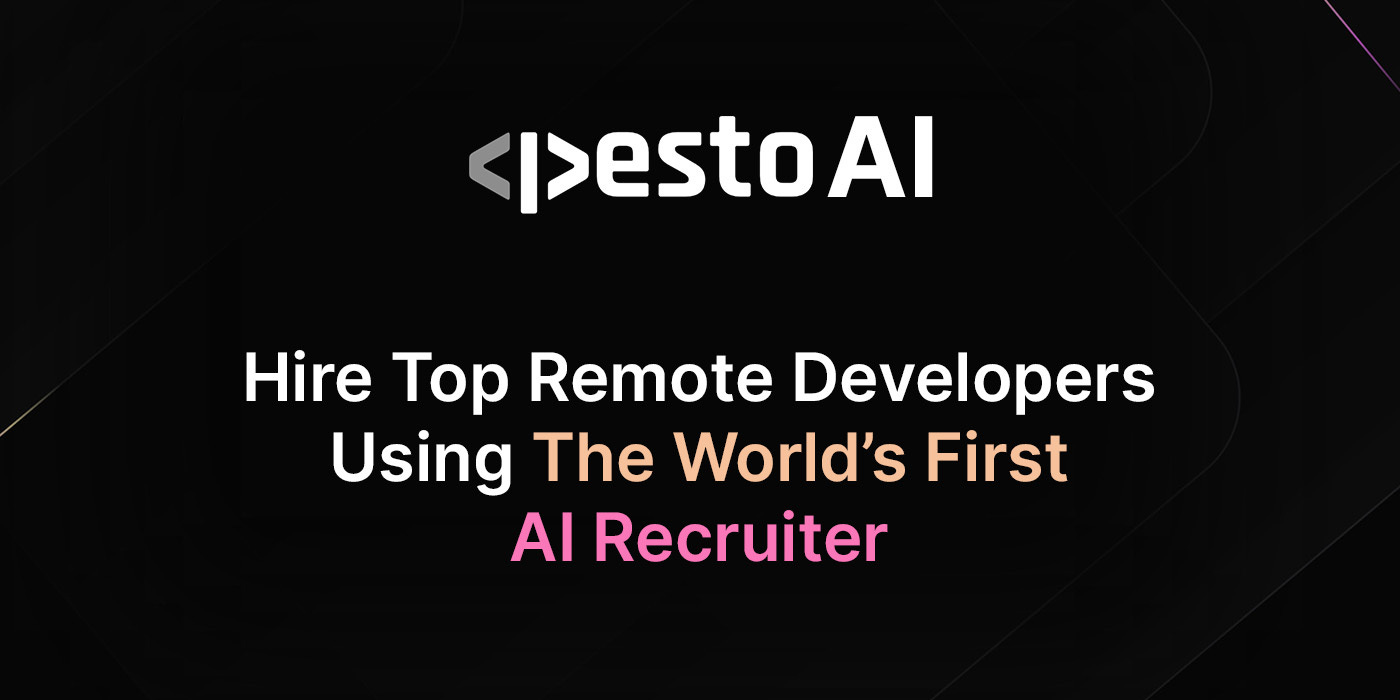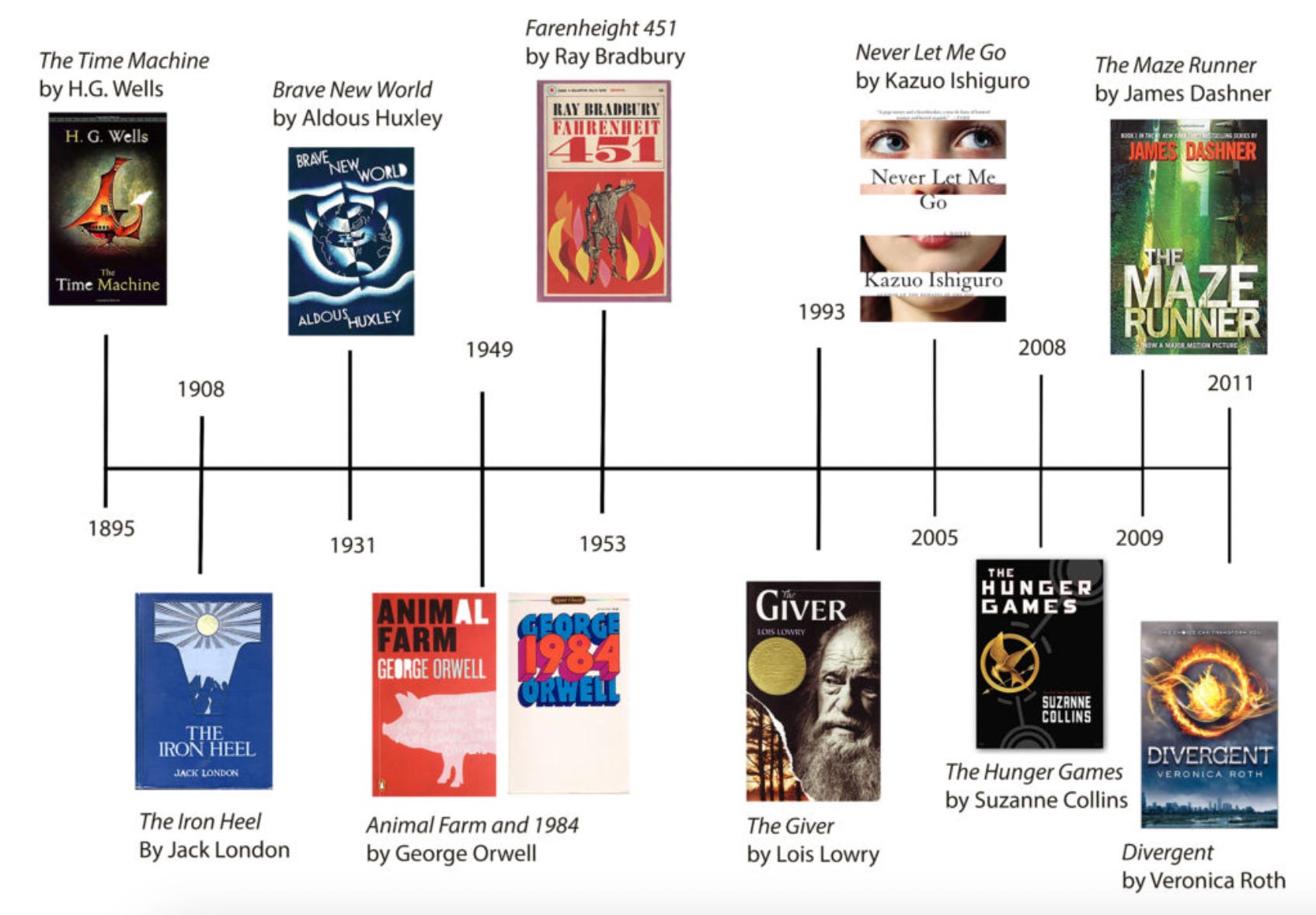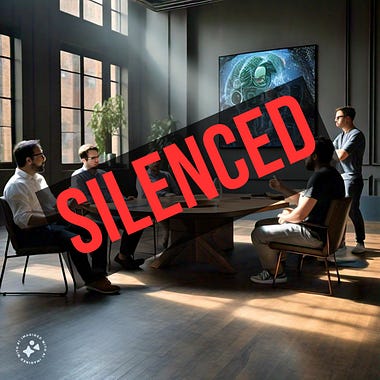🛂Should we Regulate Dystopian Fiction?Plus: What are the implications of corporate culture in AI firms on risk management and employee freedom of expression? And, what does the future hold for robotics?Get in Front of 50k Tech Leaders: Grow With Us Brought to you by PestoAI: AI recruiter for remote tech talent! Happy Wednesday everyone, Should dystopian fiction be regulated? Does it serve as a blueprint for reckless technological advancements, or merely as a cautionary tale? Additionally, what are the implications of corporate culture in AI firms on risk management and employee freedom of expression? And, what does the future hold for robotics? To unsubscribe, please find the link at the bottom of this newsletter or reply with telling me to go to hell and Ill delete you. Thanks.. Lets dive in…
📰 AI News and Trends
🌐 Other Tech news
What Is The Future Of Robotics?A hot debate in AI is whether scaling up models and data, like with ChatGPT, could revolutionize robotics. Some researchers are excited by early successes, believing scaling could unlock powerful generalization in robots. Others are skeptical, citing challenges in data collection and the high cost of training large models. Even if scaling is feasible, it may not fully solve robotics, as achieving the needed accuracy and reliability for real-world tasks remains a challenge, which means we may not have our robobutler this year and plumbers will continue to get dirty, and yes self-driving car companies will continue to struggle to achieve full autonomy despite using large-scale models. The future of robotics is likely to be a mix of approaches, with scaling playing a significant role. Exploring hybrid systems, focusing on real-world tasks, and making robot learning systems more user-friendly are also key areas for development. By embracing diverse perspectives and thinking outside the box, researchers can unlock the full potential of robotics and shape its future. The world's first AI recruiter for remote tech talent!PestoAI helps companies hire remote developers using the world's first AI recruiter. No job posting, no screening, no headaches! - Sign up for free Should We Regulate Dystopian Fiction?Recently, a "New Yorker" article titled "Are We Doomed?" discussed how dystopian books might be shaping our fears about AI, weapons of mass destruction, and other world-ending tech. It made me wonder if stories about dark futures are influencing our reality. A while back, I talked about needing a modern version of George Orwell's "1984"—a book about a government that twists the truth and crushes any opposition. Now, I'm diving into Aldous Huxley's "Brave New World Revisited." It looks at how propaganda and tech can tighten control over people—something we see more of in today's tech-heavy society. Think about how big Tech companies are buying up media and shaping what we think on platforms like Instagram and TikTok. They're not just influencing our opinions; they're steering what we buy and how we use money, especially as their digital currencies become more common (unfortunately not the decentralized kind we like) These companies also affect our emotional well-being. They're using AI to develop drugs that can change how we feel, look, and act. And with their massive budgets, they have a large influence in politics, making politicians their puppets—until we get to the point of having AI candidates. So, are we doomed? Did dystopian books predict this, or are they just cautionary tales? As troubling as these tech developments are, it's too simple to blame these stories for our tech problems. These books aren't guides; they're meant to warn us. But who is reading them and what are they getting out of them? To fight back against the sameness pushed by algorithms and preserve our unique identities, it's essential to promote critical thinking and media smarts—turn off Instagram for a bit! Encouraging a variety of viewpoints and valuing deep thought and thorough analysis over just passively taking in content can protect our independence. It's crucial to stay informed, critically assess all sides, and make choices on our own. What do you think? What else should we read to better understand these issues? I’d love to hear your thoughts. AI Firms Culture or Risk and Silencing Workers.Current and former OpenAI employees have issued a public warning about the risks of rapidly advancing artificial intelligence, asserting that development is occurring with inadequate oversight and could lead to severe consequences like misinformation and inequality. Through an open letter, they call for stronger whistleblower protections and mechanisms for anonymous feedback within AI companies. The group criticizes OpenAI for previously imposing non-disparagement clauses on employees, a practice CEO Sam Altman has pledged but failed to fully end. The letter has support from leading AI researchers, including “The Godfather of AI” Geoffrey Hinton and it underscoring the urgency for greater transparency and responsibility in AI development. 🧰 AI ToolsCode and Programming
📰 Publications I am currently reading and recommending:
🚀 Showcase Your Innovation in the Premier Tech and AI Newsletter (link) As a vanguard in the realm of technology and artificial intelligence, we pride ourselves in delivering cutting-edge insights, AI tools, and in-depth coverage of emerging technologies to over 55,000+ tech CEOs, managers, programmers, entrepreneurs, and enthusiasts. Our readers represent the brightest minds from industry giants such as Tesla, OpenAI, Samsung, IBM, NVIDIA, and countless others. Explore sponsorship possibilities and elevate your brand's presence in the world of tech and AI. Learn more about partnering with us. You’re a free subscriber to Yaro’s Newsletter. For the full experience, become a paying subscriber. Disclaimer: We do not give financial advice. Everything we share is the result of our research and our opinions. Please do your own research and make conscious decisions. |
Wednesday, June 5, 2024
🛂Should we Regulate Dystopian Fiction?
Subscribe to:
Post Comments (Atom)






No comments:
Post a Comment